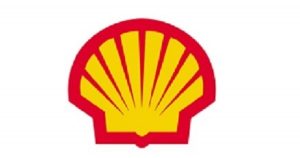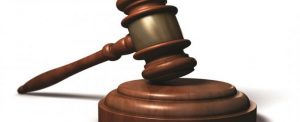News
UK Court Permits Nigerians to Sue Shell for Pollution Claims
A supreme court in the United Kingdom has ruled that the people of the Niger Delta region of Nigeria can make pollution claims against Anglo-Dutch energy giant, Royal Dutch Shell, in English courts.

The ruling overturned a 2017 decision against the Ogale and Bille communities, who brought legal claims for clean-up and compensation, following decades of repeated spills in the oil-rich region.
The claimants have argued for five years that their case against Shell and its Nigerian subsidiary, the Shell Petroleum Development Company of Nigeria (SPDC), should be heard in London because they could not expect justice in a Nigerian court.
The UK decision comes two weeks after a court in the Netherlands ordered Shell to compensate Nigerian farmers for oil spills on land in two villages in the Niger Delta after 13 years of legal battles.
Shell Nigeria must compensate the farmers for the losses they suffered due to the oil spills, in the two villages of Goi and Oruma in 2004 and 2005. The court also added that Shell hadn’t done enough to clean up the spills.
Also, six years ago, Shell agreed to pay out £55 million ($83.4 million) to the Bodo community in Nigeria in compensation for two oil spills, which was the largest ever out-of-court settlement relating to Nigerian oil spills.
In their judgment, five judges at Britain’s highest court said the previous decision by the lower court of appeal was a “material error of law” and focused too narrowly on the relationship between Shell and its Nigerian subsidiary.
Shell had argued it could not be held legally responsible for the pollution in the region in southern Nigeria and so the cases should not be heard in England.
Speaking on this, Mr Daniel Leader, from London law firm, Leigh Day, which represents the claimants said, “This Supreme Court judgment gives real hope to the people of Ogale and Bille who have been asking Shell to clean up their oil for years.”
He said he hoped the decision would lead to action from Shell and called the ruling a “watershed moment” to bring multinational companies to account.
“Increasingly impoverished communities are seeking to hold powerful corporate actors to account and this judgment will significantly increase their ability to do so,” he added.
Reacting, Shell said it was disappointed with the ruling. The energy giant has blamed sabotage for oil spills and says crude oil spills caused by theft surged by 41 per cent in 2019.
“Regardless of the cause of a spill, SPDC cleans up and remediates. It also works hard to prevent these sabotage spills, by using technology, increasing surveillance and by promoting alternative livelihoods for those who might damage pipes and equipment,” Shell said in a statement.
News
Court Freezes 21 Bank Accounts, Orders Holders’ Arrest over Alleged Money Laundering
Justice Emeka Nwite of the Federal High Court, Abuja, on Friday, ordered the temporary freezing of 21 bank accounts domiciled in some commercial banks in the country.

He also ordered the arrest of the account holders by the police.
The banks are – Access Bank Plc, Sterling Bank Ltd, Wema Bank Plc, Fidelity Bank Plc, Zenith Bank Plc, Union Bank Plc, Guarantee Trust Bank Ltd, the United Bank of Africa Plc, Stanbic IBTC Bank Plc, First Monument Bank Plc, Heritage Bank Plc, TAJ Bank Plc and Keystone Bank Plc.
The judge gave the order after counsel for the Inspector-General of Police, Ibrahim Mohammed, moved a motion ex-parte to the effect.
Justice Nwite also granted the order directing the banks to issue details of the account package(s) and to place a Post-No-Debit (PND) on the accounts, disable the Automated Teller Machines (ATMs) while allowing inflow into the said accounts pending the conclusion of the investigation.
He said: “I have listened to the submission of the learner counsel for the applicant and gone through the affidavit evidence.
“I am of the view that the motion ex-parte is meritorious.
“The application is hereby granted except that the period of the investigation can only last for 90 days.”
He adjourned the matter till April 3 for mention.
News
Lassa Fever, Others Claimed 952 Lives in 2024 – NCDC
No fewer than 952 Nigerians have been killed by Lassa fever, cholera, measles, diphtheria, and yellow fever in 2024.

This is according to data from the National Public Health Institute, Nigeria Centre for Disease Control and Prevention (NCDC).
A breakdown of the data showed that as of week 52, the country recorded 9,685 suspected cases of Lassa fever, 1,187 confirmed cases, and 191 deaths across 28 states, and 138 local government areas.
As of October, the centre recorded 14,237 suspected cases of cholera, 378 deaths in 36 states, and 339 LGAs.
The centre also recorded 18,187 suspected cases of measles, 9,330 confirmed cases, and 73 deaths in 36 states and the Federal Capital Territory across 751 LGAs as of October 2024.
Comparatively, suspected cases of cholera in the current year increased by 220 per cent compared to what was reported as of week 39 in 2023. Likewise, cumulative deaths recorded have increased by 239 per cent in 2024.
As of September, the NCDC recorded 12,085 suspected cases of diphtheria, 7,784 confirmed cases, and 309 deaths in 21 states across 170 LGAs.
The NCDC also recorded 1,484 suspected cases of Mpox, 124 confirmed cases, across 28 states, and the FCT as of November 3, 2024.
As of September, the country recorded 2,248 suspected cases of yellow fever, 18 confirmed cases, from 592 LGAs in 36 states and the FCT, and one death.
News
90 Percent of Workers to Pay Lower Taxes in Tax Reforms- PACFTR
Taiwo Oyedele, chairman, Presidential Advisory Committee on Fiscal Policy and Tax Reform (PACFTR) has said that contrary to speculations, individuals earning about N1.7 million or less per month will pay lower Pay as You Earn (PAYE) tax under the proposed Tax Amendment Bills before the National Assembly.

Besides, workers earning the new minimum wage and slightly more will also be fully exempted from tax obligations.
Addressing various tax issues on X, formerly Twitter, Oyedele said these thresholds will result in over 90 per cent of workers in the public and private sectors paying lower taxes while high income earners will pay slightly more in a progressive manner up to 25 per cent for the ultra-high net worth individuals.
His explanation came against the backdrop of general concerns that workers might pay more under the proposed tax reform initiatives of the federal government.
According to him, planned changes to the current tax table of personal income brackets and rates was to discourage arbitrage in some cases between the two income tax regimes.
He said the current tax table was introduced in 2011, stating that due to high inflation and lack of review, the structure has resulted in “fiscal drag” where many low income earners have been pushed to the top tax bracket over time.
This, he said, meant that an individual earning just N400,000 a month was paying the same top marginal income tax rate as a wealthy individual earning about N20 million per month.
“Therefore, the tax table has become regressive rather than progressive, as it was originally designed.
“Also, the current personal income tax regime does not encourage formalisation given that the effective top tax rate on companies is nearly double that of enterprises, which also encourages arbitrage in some cases between the two income tax regimes.
“Hence, the proposed changes seek to address these issues and simplify the system by incorporating current reliefs and allowances into the bands and rates to achieve an overall lower effective tax rate for the majority of workers,” Oyedele said.
Further addressing concerns over taxation of workers’ income in the proposed regulation, he clarified that apart from the N800,000 per annum, which was exempted from tax, there was a rent relief of up to N200,000 per annum, which together will exempt individuals earning up to N1 million per annum (about N83,000 per month).
He said: “This is particularly beneficial to low income earners. Also, the new tax bands and rates have been designed to avoid a situation where individuals earning slightly more than the exemption threshold are taxed to an extent that makes them worse off than a person whose income is within the exemption threshold.
“For example, a person earning N30,000 per month is exempt from tax while a person earning N30,001 per month will pay about N500 leaving the latter with a net of N29,500 which is N500 worse than the person earning N30,000.
“Under the tax bills, this problem has been addressed, as everyone will be eligible to the first tax-free bracket.”
He also revealed that statutory deductions, including pension and National Housing Fund contributions, were still applicable under the new tax bills.
According to him, “These are contributions under the National Housing Fund, National Health Insurance Scheme, Pension Reform Act, interest on loans for developing an owner-occupied residential house, annuity or premium paid for life insurance, and rent relief up to N200,000 per annum.”
He said while part of the objectives of tax reforms was simplification, the impact of the Consolidated Relief Allowance (CRA) and Personal Relief had been incorporated into the tax table such that the overall goal of exempting low income earners and reducing taxes for middle income earners was achieved.
Addressing worries over the removal of CRA and personal relief, which seemingly amounted to giving a relief with one hand and taking it back with the other, Oyedele pointed out, “By integrating the reliefs into the tax brackets and rates, many taxpayers with basic education would be able to calculate their taxes with little or no assistance thereby achieving the dual objectives of lower tax burden and tax simplification.”
On suggestions that the tax rate for the second band seemed quite steep, moving from zero per cent to 15 per cent, he said, “By comparison, the second band under the bills, which is to be taxed at 15 per cent, is currently being taxed at a marginal rate of 21 per cent even after all reliefs and allowances.
“So, while the 15 per cent may appear steep from zero per cent for the first band, it is lower compared to the current tax table.
“The real impact for a person earning about N3 million per annum equivalent to the aggregate of the first and second brackets is a lower effective tax rate of 10 per cent compared to about 12 per cent under the current tax table.”

 E-Business2 days ago
E-Business2 days agoA beginner’s guide to Temu: Your ultimate shopping companion

 E-Financial2 days ago
E-Financial2 days agoCBN did not Force 1000 Workers to Resign- Cardoso

 E-Financial2 days ago
E-Financial2 days agoBankit MFB Unveils Web Banking Platform

 Telecom2 days ago
Telecom2 days agoNavigating the Path to Sustainable Telecom Services for Subscribers

 E-Financial2 days ago
E-Financial2 days agoWorld Bank Okays $1.5Bn Loan to Nigeria in Support of Tax Bills

 Telecom2 days ago
Telecom2 days agoData breaches: Commission warns banks, hospitals, others against infractions
- Telecom3 days ago
Subscriber Group Rejects Telcos Push for Tariff Hike

 E-Business2 days ago
E-Business2 days agoNIPOST Reports 275 Percent Revenue Growth in 2024

















